Understanding The Importance Of Kidney Health| Key Nutrients For Optimal Kidney Function| Exploring The Role Of Protein In Kidney Health| Power Foods For Kidney Health| Avoiding Processed And Sugary Foods| The Role Of Fluid Balance In Kidney Health| Kidney-friendly Cooking Methods| Kidney Care Through Lifestyle Modifications| Incorporating Herbal Supplements For Kidney Health| Seeking Professional Help For Kidney Health| Frequently Asked Questions On Kidney Care|
Kidney care and healthy foods for kidneys are crucial for maintaining optimal kidney function and overall health. To ensure the well-being of your kidneys, it is essential to adopt a diet that supports their proper functioning.
This article discusses the importance of kidney care, the role of diet in kidney health, and provides recommendations for foods that promote kidney well-being. By following these dietary guidelines, individuals can take proactive steps towards preserving kidney health and preventing the onset of kidney-related conditions.
Understanding The Importance Of Kidney Health
The kidneys play a vital role in maintaining overall health. These bean-shaped organs located on either side of the spine are responsible for filtering waste and excess fluid from the blood, producing urine, regulating blood pressure, and balancing crucial minerals in the body. Taking care of your kidneys is essential to keep them functioning optimally and prevent kidney damage. In this article, we will explore the importance of kidney health, common causes of kidney damage, and the impact of diet on your kidneys, providing you with valuable insights to prioritize kidney care in your daily life.

The Vital Role Of Kidneys In Maintaining Overall Health
The kidneys are a powerhouse when it comes to ensuring the proper functioning of our bodies. Let’s take a look at some of their key roles:
- Filtering waste products: The kidneys filter waste products, toxins, and excess fluids from the bloodstream, helping maintain a healthy chemical balance within the body.
- Producing urine: Through the filtration process, the kidneys produce urine, which carries waste out of the body.
- Regulating blood pressure: The kidneys help regulate blood pressure by releasing a hormone called renin, which constricts blood vessels when necessary.
- Balancing minerals: Kidneys ensure the right balance of minerals such as sodium, potassium, and phosphorus in the body, crucial for proper nerve and muscle function.
It’s evident that the kidneys are an integral part of our overall health, underscoring the need for their proper care and maintenance.
Common Causes Of Kidney Damage
While the kidneys are resilient organs, they can be vulnerable to certain factors that can damage their structure and impair their function. Here are some common causes of kidney damage:
- Uncontrolled high blood pressure: High blood pressure can put excessive strain on the blood vessels in the kidneys, leading to kidney damage over time.
- Diabetes: Uncontrolled diabetes can lead to diabetic nephropathy, a condition that damages the small blood vessels in the kidneys.
- Chronic kidney infections: Repeated kidney infections can cause scarring and damage to the kidneys.
- Certain medications and toxins: Prolonged use of certain medications, such as non-steroidal anti-inflammatory drugs (NSAIDs), and exposure to toxins like heavy metals can harm the kidneys.
Being aware of these common causes can help you take necessary precautions to protect your kidneys and maintain their health.
The Impact Of Diet On Kidney Health
Your diet plays a significant role in maintaining optimal kidney health. By making conscious choices and consuming the right foods, you can support your kidneys’ well-being. Here are some dietary measures to consider:
- Reducing sodium intake: Excessive sodium in the diet can increase blood pressure and strain the kidneys. It’s crucial to limit the consumption of processed and packaged foods, which are often high in sodium.
- Ensuring adequate hydration: Staying hydrated is essential for kidney health as it helps in flushing out toxins and waste products. Aim to drink an adequate amount of water throughout the day.
- Choosing healthy protein sources: Opt for lean proteins like fish, poultry, and legumes, as they are easier for the kidneys to process compared to red meats.
- Moderating phosphorus and potassium intake: Individuals with kidney issues need to moderate their intake of phosphorus and potassium. This involves limiting or avoiding foods like nuts, seeds, bananas, and oranges, which are rich in these minerals.
- Managing diabetes and blood pressure: If you have diabetes or high blood pressure, managing these conditions well is crucial to prevent kidney damage. Follow your healthcare provider’s recommendations closely and monitor your levels regularly.
By adopting these dietary practices, you can ensure that your kidneys receive the nourishment they need to function optimally, mitigating the risk of kidney damage.
10 Of The Most Nutrient-Dense Foods You Can Eat : Boost Your Health with These Power-Packed Foods!
Key Nutrients For Optimal Kidney Function
Discover the key nutrients essential for maintaining optimal kidney function and promoting kidney health. Incorporating a balanced diet rich in foods like berries, leafy greens, whole grains, and lean proteins can support your kidneys’ well-being.
Exploring The Role Of Protein In Kidney Health
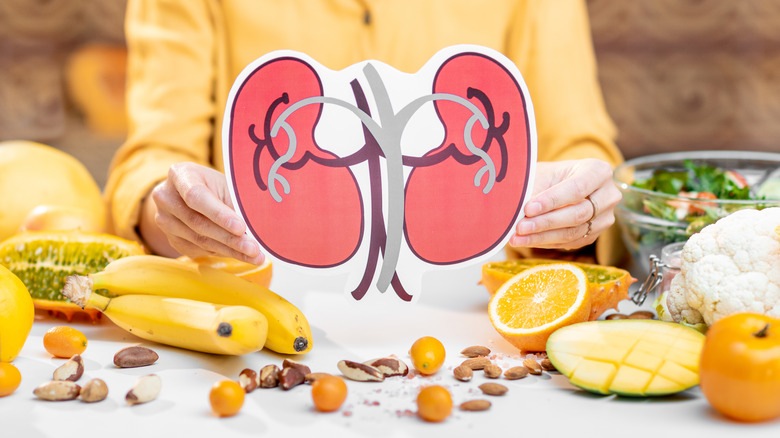
Protein plays a crucial role in maintaining optimal kidney function. However, it’s important to strike a balance when consuming protein-rich foods, especially for those with existing kidney conditions. Too much protein can put excess strain on the kidneys, while too little can lead to muscle wasting and compromised immune function. To ensure a healthy intake of protein, focus on lean sources such as poultry, fish, and plant-based options like legumes and tofu. These provide essential amino acids without added saturated fats or cholesterol, which can negatively impact kidney health. Avoid processed meats and high-fat dairy products
The Importance Of Consuming Adequate Fluids
Adequate fluid intake is vital for maintaining kidney health. Proper hydration helps to flush out toxins and waste products from the body, reducing the workload on the kidneys. It also prevents the formation of kidney stones, a common condition that can cause intense pain and hinder kidney function. Due to individual variations, the amount of fluid required may vary. However, a general guideline is to consume around 8 to 10 cups of fluids per day. Water is the best choice, but other options like herbal tea, diluted fruit juices, and low-sodium broths also count towards fluid intake. Avoid excessive consumption of caffeinated beverages
Essential Vitamins And Minerals For Kidney Function
In addition to protein and fluids, certain vitamins and minerals play a crucial role in supporting optimal kidney function. These include:
1. Vitamin Cprotect the kidneys from oxidative stress and inflammation. It can be obtained through a diet rich in citrus fruits, berries, kiwi, and leafy green vegetables.
2. Vitamin Dpreventing kidney stone formation and supporting overall kidney health. Rich food sources include fatty fish, fortified dairy products, and egg yolks.
3. Potassiumcounterbalances sodium‘s effects on blood pressure. It can be found in bananas, oranges, tomatoes, potatoes, and greens.
4. Magnesiumpreventing kidney stone formation and maintaining overall kidney health. Good sources include nuts, seeds, legumes, and whole grains.
5. Phosphorusexcessive phosphorusAvoid high phosphorus foods like processed meats, dairy products, and carbonated beverages.
6. B vitaminshomocysteine levels, which are associated with an increased risk of kidney disease. Good sources include meat, fish, poultry, eggs, and leafy green vegetables. By including these key nutrients in your diet, you can support optimal kidney function and promote overall kidney health. Remember to consult with a healthcare professional, especially if you have pre-existing kidney conditions or specific dietary needs.
Small Good Habits to Stay Healthy: Transform Your Lifestyle
Power Foods For Kidney Health
Managing Sodium Intake For Healthy Kidneys
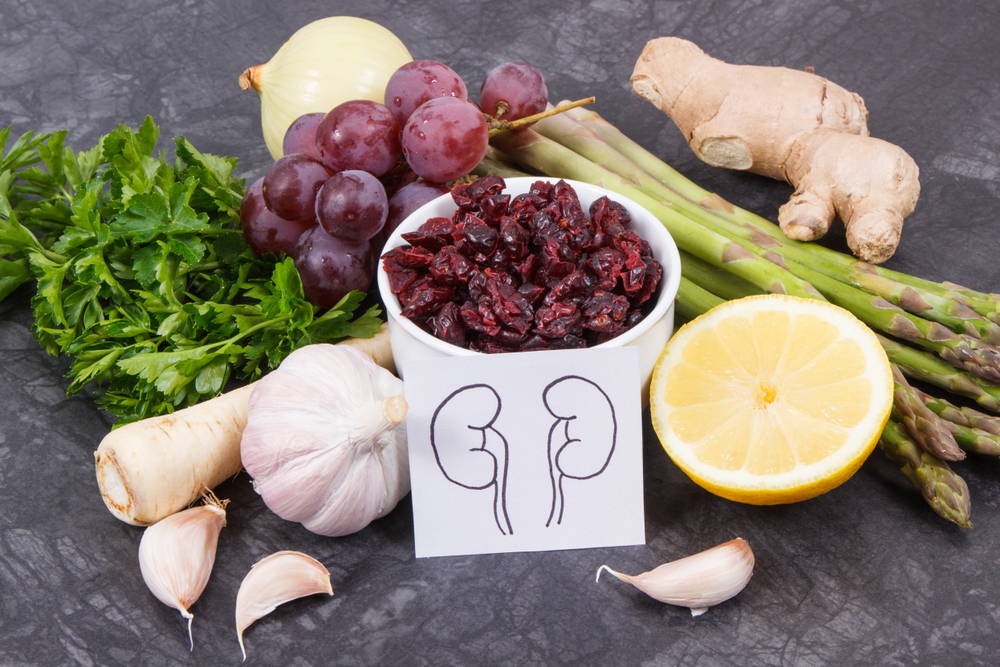
Managing sodium intake is crucial for maintaining healthy kidneys. By incorporating kidney-friendly foods into your diet, you can promote kidney health and reduce the risk of kidney-related issues.
Managing Sodium Intake for Healthy Kidneys The effects of high sodium intake on kidneys Excessive sodium intake can have detrimental effects on kidney health. When the kidneys are overburdened with processing high amounts of sodium, they struggle to maintain a proper balance of fluids and electrolytes in the body. This can lead to an increase in blood pressure, putting additional strain on the kidneys and potentially causing kidney damage over time. Tips for reducing sodium in your diet Reducing sodium intake is crucial for maintaining healthy kidneys. Here are some practical tips to help you lower your sodium consumption:
1. Read food labels: Pay close attention to the sodium content listed on food labels. Opt for products labeled as low-sodium or sodium-free.
2. Cook at home: Preparing meals at home allows you to have complete control over the amount of sodium you consume. Use fresh ingredients and season with herbs, spices, and salt-free seasoning blends instead of relying on high-sodium processed foods.
3. Choose fresh produce: Incorporate a variety of fresh fruits and vegetables into your diet. These nutrition powerhouses are naturally low in sodium and provide a wide range of essential vitamins and minerals.
4. Rinse canned foods: If you opt for canned foods such as beans or vegetables, give them a good rinse before consuming. This helps remove excess sodium from the surface.
5. Limit processed meats: Processed meats like sausages, bacon, and deli meats tend to be high in sodium. Opt for lean cuts of fresh meat or poultry instead. Exploring low-sodium alternatives and flavor enhancers Reducing sodium intake doesn’t mean sacrificing flavor. There are plenty of low-sodium alternatives and flavor enhancers that can add a burst of taste to your meals. Consider these options:
1. Herbs and spices: Experiment with various herbs and spices to add flavor to your dishes. Cumin, paprika, turmeric, and thyme are just a few examples of flavorful options that are low in sodium.
2. Citrus juices: Squeeze fresh lemon or lime juice onto your meals to enhance their taste. These citrus juices can lift the flavors of your dishes without adding extra sodium.
3. Vinegars: Balsamic, apple cider, and rice vinegar can be used as a low-sodium alternative to traditional high-sodium condiments like soy sauce or ketchup.
4. Salt substitutes: Certain salt substitutes contain potassium chloride instead of sodium chloride. However, it’s essential to check with your healthcare provider before using them, as they may not be suitable for everyone. By managing your sodium intake and exploring low-sodium alternatives, you can support the health of your kidneys and improve your overall well-being. Remember, small changes in your daily habits can make a big difference in the long run. So, make conscious choices for your kidney health and aim for a low-sodium diet.
Healthy Lifestyle Tips Trick Master the Art of Living Well
Avoiding Processed And Sugary Foods
When it comes to maintaining kidney health, your diet plays a crucial role. Avoiding processed and sugary foods is pivotal in ensuring the well-being of your kidneys. Processed foods, specifically those high in sodium, preservatives, and additives, can negatively impact kidney function. Excessive sugar consumption, on the other hand, poses dangers to the kidneys. It’s essential to understand why processed foods and excess sugar should be minimized or eliminated from your diet for optimal long-term kidney care.

Understanding The Negative Impact Of Processed Foods On Kidney Health
The modern diet often includes processed foods, which are known for their convenience and easy availability. However, these foods are frequently loaded with excess sodium, preservatives, and unhealthy additives. Such ingredients can put undue stress on your kidneys, as they struggle to filter out these harmful substances. Over time, this can lead to inflammation and damage to the delicate kidney tissues.
Moreover, processed foods are typically low in essential nutrients and fiber that promote overall health. This lack of nutrition further sets the stage for weakened kidney function, as vital nutrients are necessary for the kidneys to perform optimally. By understanding the negative impact of processed foods, you can make a conscious effort to eliminate or reduce their consumption.
The Dangers Of Excess Sugar Consumption For Kidney Function
Excess sugar consumption poses significant risks not only to your overall health but also to your kidneys. Consuming high amounts of sugary foods and beverages can lead to obesity, diabetes, and high blood pressure, all of which contribute to kidney disease. When excess sugar circulates in the bloodstream, the kidneys are responsible for filtering it out. However, over time, the kidneys can become overworked and damaged if constantly exposed to high levels of sugar.
Additionally, a diet rich in sugary foods and drinks promotes weight gain, which puts extra pressure on the kidneys. This added strain can hinder their ability to function optimally and increases the likelihood of developing kidney problems over time. By limiting your intake of sugary foods, you can safeguard your kidneys and reduce the risk of kidney disease.
Making Healthier Choices For Long-term Kidney Care
When it comes to kidney care, making healthier dietary choices is crucial. By avoiding processed foods and reducing sugar intake, you can take proactive steps towards maintaining optimal kidney function. Here are some strategies to consider:
- Focus on whole, unprocessed foods such as fruits, vegetables, whole grains, lean proteins, and legumes.
- Opt for low-sodium options and read food labels carefully to identify hidden sources of sodium in processed foods.
- Prepare homemade meals using fresh ingredients whenever possible to have better control over your sodium and sugar intake.
- Stay hydrated by drinking plenty of water throughout the day, as proper hydration is essential for kidney health.
- Avoid sugary beverages, including sodas, energy drinks, and sweetened fruit juices. Instead, opt for water, herbal tea, or unsweetened alternatives.
- Limit your consumption of sugary snacks, candies, desserts, and processed sweets. Opt for healthier snack options like fresh fruits or homemade snacks made with minimal added sugar.
By making these healthier choices, you can support your kidneys’ long-term well-being, minimize the risk of kidney disease, and maintain overall good health.
Powerful Strategies for Stronger Bones
The Role Of Fluid Balance In Kidney Health
When it comes to maintaining kidney health, one of the key factors to consider is maintaining proper fluid balance. The kidneys play a vital role in filtering waste from the blood, regulating electrolyte levels, and maintaining overall fluid balance in the body. When this delicate balance is disrupted, it can lead to a plethora of health issues that can be harmful to the kidneys.
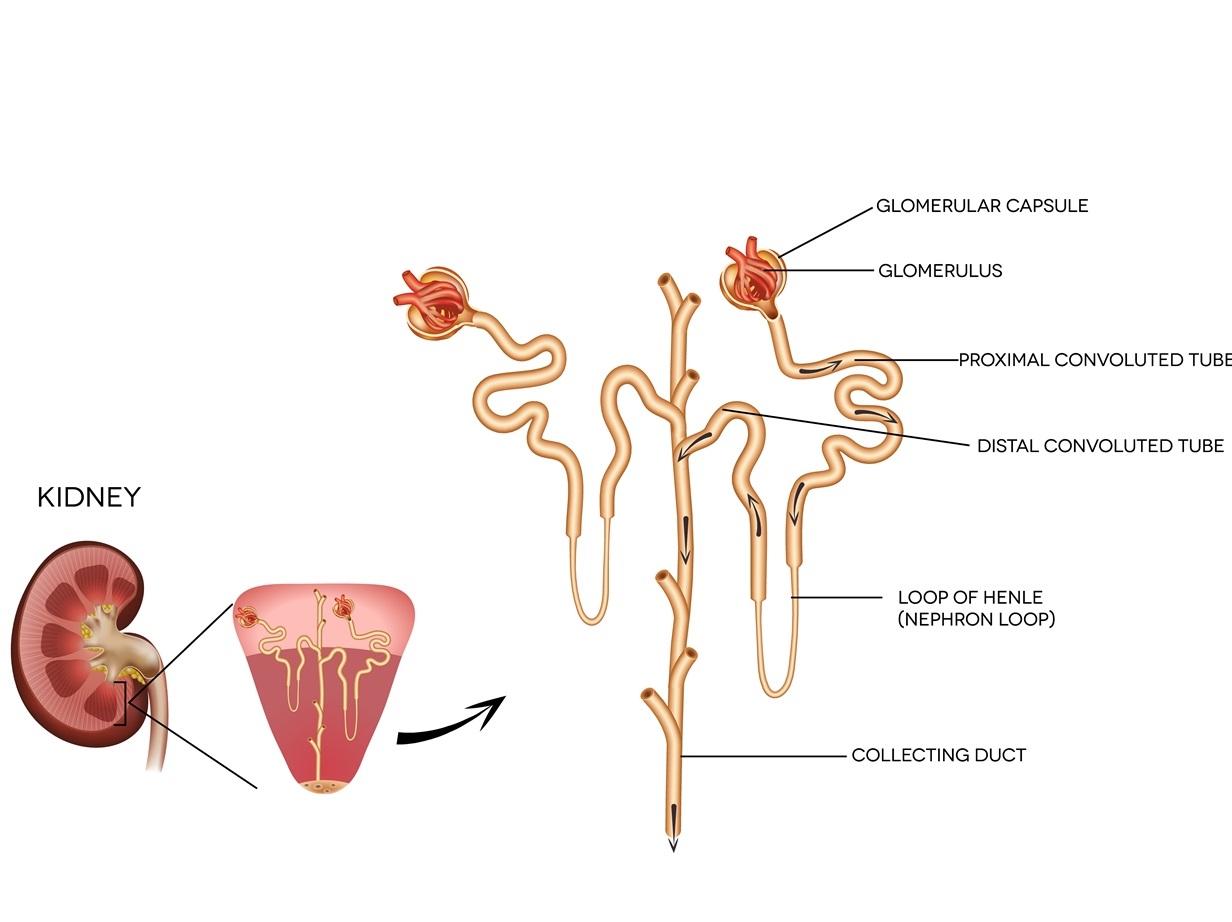
The Importance Of Maintaining Proper Fluid Balance
Proper fluid balance is crucial for kidney health as it allows the kidneys to function optimally. The kidneys rely on an adequate amount of fluid to effectively filter waste and toxins from the blood while also maintaining electrolyte levels. When there is an imbalance, such as dehydration or excessive fluid intake, it can strain the kidneys and impair their ability to carry out these essential functions.
Strategies For Monitoring And Managing Fluid Intake
Monitoring and managing fluid intake is essential for maintaining a healthy fluid balance. Here are some strategies you can incorporate into your daily routine:
- Keep track of fluid intake: Measure and record the amount of fluids you consume daily to ensure you are within the recommended range.
- Avoid excessive fluid intake: While it’s important to stay hydrated, consuming too much fluid can put a strain on the kidneys. Stick to the recommended daily fluid intake guidelines provided by healthcare professionals.
- Be mindful of hidden fluids: Remember that fluids can come from various sources, not just beverages. Foods like fruits, vegetables, and soups also contribute to your overall fluid intake.
- Listen to your body: Pay attention to your body’s thirst signals and drink water when you feel genuinely thirsty. Thirst is a natural indicator that your body needs hydration.
Dealing With Fluid Retention And Edema
Fluid retention and edema can be problematic for kidney health, but there are steps you can take to manage and reduce these conditions:
- Limit sodium intake: Sodium is known to cause water retention. Try to minimize your consumption of high-sodium foods, such as processed snacks and fast food.
- Incorporate diuretic foods into your diet: Certain natural diuretic foods, such as cucumbers, watermelon, and celery, can help increase urine production and flush out excess fluid.
- Stay physically active: Regular exercise can help maintain circulation and reduce fluid buildup in the body. Aim for at least 30 minutes of moderate-intensity exercise most days of the week.
- Follow medical advice: If you are experiencing persistent fluid retention or edema, it is crucial to consult with your healthcare provider. They can provide appropriate guidance and prescribe diuretic medications if necessary.
Why Does the Body Smell Bad? Discover the Culprits of Unpleasant Odors!
Kidney-friendly Cooking Methods
Discover kidney-friendly cooking methods that promote kidney care and support overall kidney health. With a focus on healthy foods for kidneys, these cooking techniques ensure that your meals are both tasty and beneficial for your kidneys.
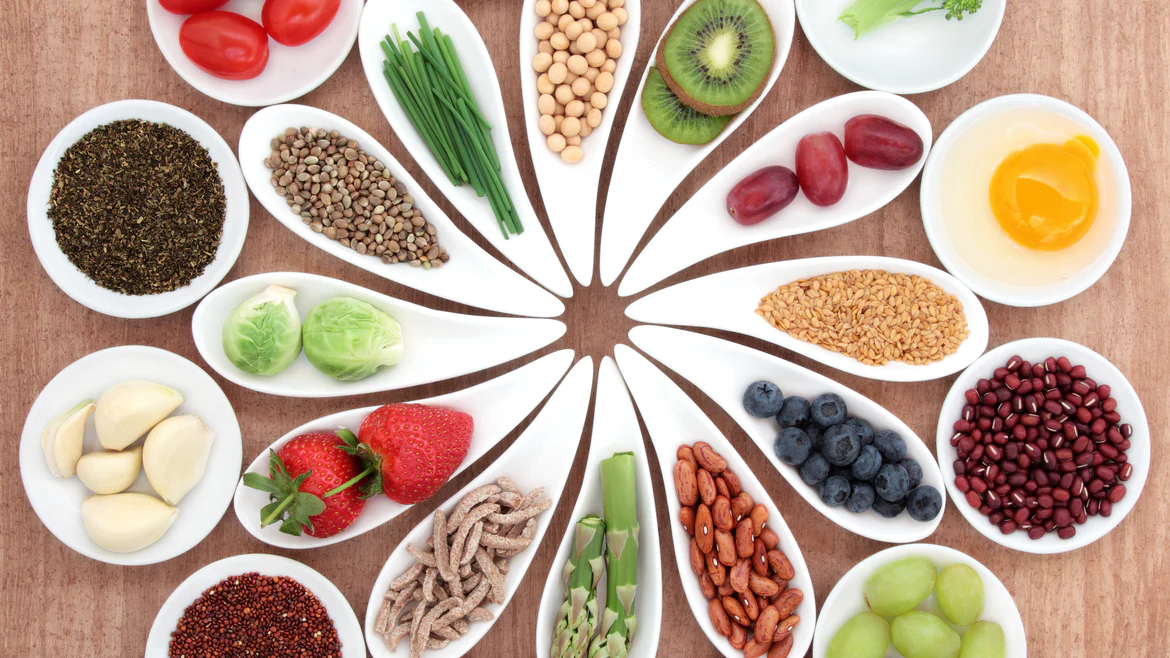
The Impact Of Cooking Methods On Kidney Health
Cooking methods play a crucial role in promoting kidney health and optimizing the nutritional value of your meals. The way you cook your food can greatly affect its nutrient content, especially when it comes to preserving vital vitamins and minerals like potassium and phosphorus. Understanding the impact of different cooking methods on kidney health can help you make informed choices when preparing meals for yourself or loved ones.
Healthy Alternatives To Frying And Deep-frying
Frying and deep-frying may enhance the taste of your favorite foods, but they can also introduce excessive amounts of unhealthy fats and sodium into your diet. Fortunately, there are several healthier alternatives that can still satisfy your cravings without compromising your kidney health. Consider trying these kidney-friendly cooking methods:
- Grilling: Opt for grilling your food as it adds a smoky flavor to your dishes while reducing the need for added fats. Whether it’s vegetables, lean meats, or fish, grilling can help retain essential nutrients and keep your kidneys happy.
- Baking: Baking is a versatile and kidney-friendly cooking method that allows you to cook a wide array of foods without excessive oils or fats. You can bake vegetables, chicken breasts, or even fruits for a healthy and delicious twist.
- Steaming: Steaming is an excellent way to lock in nutrients while maintaining the natural flavors and textures of your ingredients. By using a steamer basket or a steaming appliance, you can cook vegetables, fish, or poultry without the need for added oils or salts.
- Sautéing: Sautéing is a quick and easy cooking method that involves cooking ingredients in a small amount of oil over medium heat. While using minimal oil, you can still enjoy the flavors and textures of your food. Just be mindful of the type of oil you use and opt for healthier options like olive oil or avocado oil.
Tips For Cooking Kidney-friendly Meals Without Sacrificing Flavor
Now that you know some kidney-friendly cooking methods, here are a few tips to ensure your meals are packed with flavor without compromising your kidney health:
- Experiment with herbs and spices: Enhance the taste of your dishes by incorporating a variety of herbs and spices. From basil and oregano to turmeric and cinnamon, these flavor-packed additions can elevate your meals without adding extra sodium or phosphorus.
- Choose low-sodium options: Opt for low-sodium or no-salt-added condiments and seasonings to reduce your sodium intake. Be watchful of high-sodium ingredients like canned soups, pickles, and processed meats.
- Include plenty of fruits and vegetables: A diet rich in fruits and vegetables not only provides essential nutrients but also adds freshness and vibrancy to your meals. Don’t hesitate to experiment with different varieties and colors to make your kidney-friendly dishes visually appealing and enticing.
- Limit processed and packaged foods: Processed and packaged foods often contain high amounts of sodium, preservatives, and additives that can strain your kidneys. Opt for fresh, whole foods that you can prepare and cook yourself.
- Monitor portion sizes: Keep an eye on portion sizes to ensure you’re not overloading your kidneys with excessive nutrients. Moderation is key, and by controlling portion sizes, you can still enjoy a variety of foods while maintaining kidney health.
By following these kidney-friendly cooking methods and incorporating these tips into your meal preparation, you can nourish your body with delicious, nutrient-dense meals that support optimal kidney health. Your taste buds and kidneys will thank you!
A List of 50 Super Healthy Foods: Transform Your Health with These Power-packed Foods!
Kidney Care Through Lifestyle Modifications
When it comes to maintaining optimal kidney health, lifestyle modifications play a crucial role. By making small but impactful changes to our daily routine, we can improve kidney function and reduce the risk of kidney-related diseases. In this article, we will explore three key lifestyle modifications that are essential for kidney care: regular exercise, managing stress, and avoiding smoking and excessive alcohol consumption.

The Benefits Of Regular Exercise For Kidney Health
Regular exercise not only keeps our bodies fit but also has numerous benefits for kidney health. Engaging in physical activities stimulates blood flow and helps flush out toxins from the body, thereby reducing the burden on the kidneys. Exercise also promotes cardiovascular health, which is closely linked to kidney function. Here are some key benefits of regular exercise for kidney care:
- Improved Blood Pressure Control: Hypertension is one of the leading causes of kidney disease. Regular exercise helps lower blood pressure levels, reducing the risk of kidney damage.
- Enhanced Glucose Control: People with diabetes have a higher risk of kidney problems. Exercise improves insulin sensitivity and helps maintain healthy blood sugar levels, thereby protecting the kidneys.
- Weight Management: Obesity is a risk factor for kidney disease. Engaging in physical activities aids in weight management and decreases the likelihood of developing kidney-related complications.
Managing Stress For Optimal Kidney Function
Stress has a significant impact on our overall well-being, including kidney health. When we are under constant stress, the body releases stress hormones that can negatively affect kidney function. By adopting effective stress management techniques, we can enhance kidney health and reduce the risk of kidney disease. Here are some strategies to manage stress for optimal kidney function:
- Meditation and Deep Breathing: Practicing meditation and deep breathing exercises helps relax the mind and body, reducing stress levels and improving kidney health.
- Physical Activity: Regular exercise not only benefits the body but also acts as a stress reliever. Engaging in activities like yoga, cycling, or swimming can significantly reduce stress levels.
- Time Management: Proper time management can help reduce stress by improving efficiency and minimizing overwhelming situations. Prioritizing tasks and taking breaks when needed can prevent stress buildup.
Avoiding Smoking And Excessive Alcohol Consumption For Kidney Care
Smoking and excessive alcohol consumption have detrimental effects on kidney health. Not only do these habits increase the risk of kidney disease, but they also impair kidney function. Quitting smoking and limiting alcohol intake are essential for kidney care. Here are some reasons why avoiding smoking and excessive alcohol consumption is crucial for maintaining healthy kidneys:
| Effects of Smoking | Effects of Excessive Alcohol Consumption |
|---|---|
|
|
By avoiding smoking and limiting alcohol consumption, we can significantly lower the risk of developing kidney disease and safeguard our overall kidney health.
A List of 50 Super Healthy Foods: Transform Your Health with These Power-packed Foods!
Incorporating Herbal Supplements For Kidney Health
When it comes to taking care of our kidneys, incorporating herbal supplements into our routine can be a beneficial strategy. These natural remedies have been used for centuries to promote kidney health and support overall well-being. Before exploring popular herbal supplements for kidney care, it’s important to understand their potential benefits and risks. Furthermore, consulting with a healthcare professional is essential before trying any herbal remedies. Let’s delve into the details and learn more about how herbal supplements can contribute to healthier kidneys.
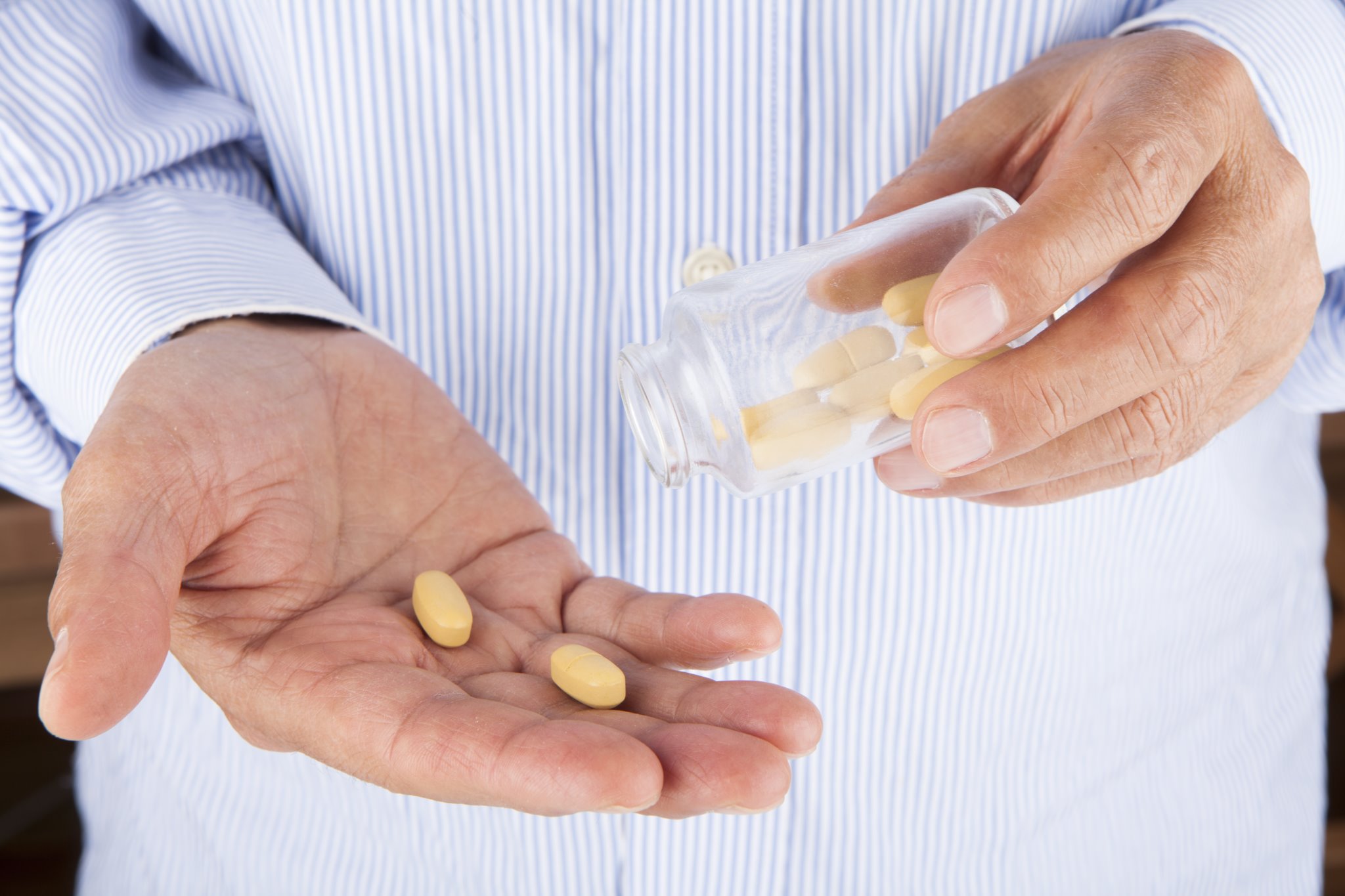
Exploring Popular Herbal Supplements For Kidney Care
There are various herbal supplements that have gained popularity for their potential positive impact on kidney health. While scientific evidence may vary and more research is needed, these supplements have been traditionally used and are widely available. Here are a few commonly known herbal remedies:
| Supplement | Potential Benefits |
|---|---|
| Dandelion root | May help support healthy kidney function and promote detoxification |
| Ginger | Known for its anti-inflammatory properties and potential to reduce oxidative stress in the kidneys |
| Cranberry | May help prevent urinary tract infections and support urinary health |
| Nettle leaf | Traditionally used as a diuretic and to support kidney function |
Understanding The Potential Benefits And Risks
While herbal supplements offer potential benefits for kidney health, it’s crucial to be aware of the associated risks and limitations. These supplements are not a substitute for medical treatment and should only be used as complementary approaches. Here are some key points to consider:
- Herbal supplements may interact with certain medications, so it’s important to inform your healthcare professional about any supplements you plan to incorporate into your routine.
- Scientific research on the effectiveness and safety of herbal supplements for kidney health is limited, and individual results may vary.
- Consulting with a healthcare professional is essential before trying herbal remedies, especially if you have pre-existing health conditions or are taking medications.
Consulting With A Healthcare Professional Before Trying Herbal Remedies
Prior to starting any herbal supplement regimen, it is crucial to consult with a qualified healthcare professional. They can provide personalized advice and help assess whether herbal supplements are suitable for your specific health needs. Furthermore, they can guide you on proper dosage, potential interactions, and any existing contraindications. Always remember to prioritize your safety and well-being by making informed decisions with professional guidance.
Seeking Professional Help For Kidney Health
Discover the importance of kidney care and maintaining kidney health through a balanced diet and professional assistance. Explore the benefits of healthy foods for kidneys and seek expert guidance to promote overall wellbeing.
The Importance Of Regular Check-ups And Kidney Function Tests

Regular check-ups and kidney function tests are essential for maintaining healthy kidneys. These tests help in monitoring the overall health of your kidneys, identifying any potential issues, and assessing the effectiveness of your current treatment plan. By keeping up with these check-ups, you can catch any problems early on and prevent further damage. It is recommended to consult with a healthcare professional to determine the necessary frequency of these tests, as it varies based on individual factors such as age, medical history, and overall kidney health.
When To Consult A Nephrologist Or Kidney Specialist
If you experience symptoms like ongoing fatigue, persistent lower back pain, decreased urine output, swelling in the ankles or face, and blood in the urine, it’s essential to consult a nephrologist or kidney specialist. These healthcare professionals are specialized in diagnosing and treating kidney-related conditions. They will assess your symptoms, conduct specific tests, and provide expert guidance on managing and treating kidney issues effectively. Remember, early intervention can significantly improve the outcome, so don’t hesitate to seek medical advice if you suspect any kidney problems.
Tips For Advocating For Your Kidney Health During Medical Appointments
- Come prepared: Before your medical appointment, make a list of any symptoms, concerns, or questions you have related to your kidney health. Having this information ready will ensure you won’t forget anything during the appointment.
- Be proactive: Don’t be afraid to speak up and ask questions during your appointment. Understand your diagnosis, treatment options, and potential side effects. Clear any doubts you have with your healthcare provider to make informed decisions about your kidney health.
- Seek clarification: If there is something you don’t understand, ask your healthcare provider to explain it in simple terms. It’s crucial to fully comprehend your condition and treatment plan to actively participate in your kidney health management.
- Maintain an open dialogue: Establishing good communication with your healthcare provider is key. Share any changes in symptoms or concerns between appointments. As partners in your kidney health journey, a strong doctor-patient relationship significantly contributes to better outcomes.
- Follow the advice: Finally, ensure you follow the recommended treatment plan, medications, and any dietary restrictions suggested by your healthcare provider. Sticking to these guidelines diligently will support your kidney health and overall wellbeing.
9 Tricks for Healthier, Fuller-Looking Hair: Power up Your Haircare Routine!
Frequently Asked Questions On Kidney Care And Healthy Foods For Kidneys
What Are The Best Foods For Kidney Health?
Eating a diet rich in fruits, vegetables, whole grains, lean proteins, and low-fat dairy products can promote kidney health.
How Much Water Should I Drink For Kidney Care?
It is recommended to drink at least 8 cups (64 ounces) of water per day for optimal kidney function.
Can Drinking Alcohol Affect Kidney Health?
Excessive alcohol consumption can lead to dehydration and may contribute to kidney damage over time.
Are There Certain Foods To Avoid For Kidney Health?
Limiting sodium, processed foods, high-potassium foods, and sugary drinks can help maintain kidney health.
Can Exercising Improve Kidney Function?
Regular physical activity can promote overall health, including kidney function, by improving blood circulation and reducing the risk of chronic conditions.
What Role Does Salt Play In Kidney Health?
High sodium intake can raise blood pressure and contribute to kidney damage, so it’s important to monitor your salt intake.
Are There Any Natural Remedies For Kidney Care?
While there are no guaranteed remedies, certain herbs and supplements, like parsley and cranberry extract, may have some benefits for kidney health.
Is It True That Caffeine Can Harm The Kidneys?
Moderate caffeine consumption is generally safe, but excessive intake may lead to dehydration and potentially affect kidney function.
Can Stress Affect Kidney Health?
Long-term stress can indirectly impact kidney health by contributing to high blood pressure and poor lifestyle choices that may harm the kidneys.
What Are The Early Signs Of Kidney Problems?
Symptoms of kidney problems can include frequent urination, blood in urine, swelling in the legs, fatigue, and persistent back pain.
Conclusion
Caring for your kidneys and ensuring their health is crucial for overall wellbeing. By making smart food choices and avoiding harmful substances, you can support your kidney function and prevent the risk of kidney disease. Incorporating a balanced diet rich in fruits, vegetables, whole grains, and lean proteins can provide the essential nutrients your kidneys need.
Remember, taking small steps towards kidney care today can lead to significant health benefits in the long run. Embrace a kidney-friendly lifestyle and enjoy a healthier life.
Understanding The Importance Of Kidney Health| Key Nutrients For Optimal Kidney Function| Exploring The Role Of Protein In Kidney Health| Power Foods For Kidney Health| Avoiding Processed And Sugary Foods| The Role Of Fluid Balance In Kidney Health| Kidney-friendly Cooking Methods| Kidney Care Through Lifestyle Modifications| Incorporating Herbal Supplements For Kidney Health| Seeking Professional Help For Kidney Health| Frequently Asked Questions On Kidney Care|




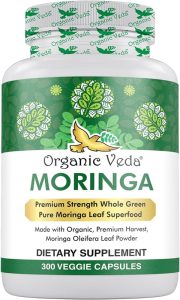



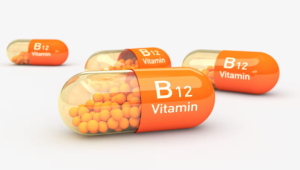




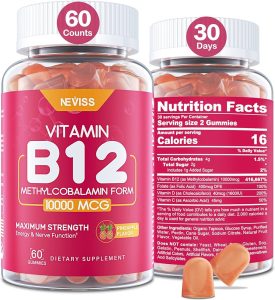



Be First to Comment